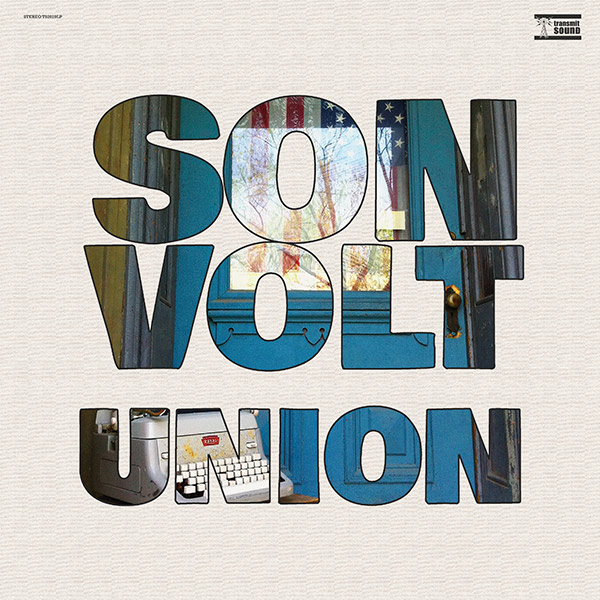SON VOLT
Union
Transmit Sound/Thirty Tigers
In his quarter-century at the helm of Son Volt, preceded by his pioneering stint as co-leader of Uncle Tupelo, Jay Farrar has maintained an understated yet consistently compelling worldview whose philosophical complexity sets him apart from garden-variety roots-rockers. Delivered in a vivid drawl that conveys equal levels of outrage and resignation, Farrar’s most resonant compositions embody a haunting fusion of present and past, eschewing flash in favor of slow-burning intensity.
Farrar’s been on a bit of a hot streak lately, making some of his most soulful music as he’s continued to retreat from the major-label mainstream. That’s largely the case with Union, which draws much of its lyrical inspiration from the abasements of our current sociopolitical situation. Partially recorded in such historic locations as the Mother Jones Museum in Mount Olive, Illinois and the Woody Guthrie Center in Tulsa, Oklahoma, Union offers a bittersweet take on life in Trumpworld, laced with deep sadness and abiding hope.
Retaining the scrappy band lineup that toured behind 2017’s folk-bluesy Notes of Blue — guitarist Chris Frame, bassist Andrew DuPlantis, multi-instrumentalist Mark Spencer, and drummer Mark Patterson — Union maintains much of the prior album’s folk-blues vibe, the better to showcase the idealistic grit of Farrar’s new compositions and the emotional authority of his hard-bitten but resilient voice. The album’s 13 songs offer an affecting look at our life and times, with such bracing tunes as “While Rome Burns,” “The 99,” “Reality Winner,” and “Lady Liberty” delivering a haunting vision of life in a society with little moral or ethical recourse. “Lady Liberty” is particularly persuasive in its finger-pointing at an ethically-challenged administration, while “Reality Winner” pays heartfelt tribute to the spirit of its namesake, a female military intelligence specialist currently imprisoned for leaking information regarding Russian interference in the 2016 presidential election. And “The Symbol” — Farrar’s answer to Woody Guthrie’s “Deportee” — is a moving first-person account of an undocumented immigrant attempting to make sense of senselessly cruel government policy.
But Farrar and company offer considerable uplift throughout Union, too. Making music is an act of faith and hope in itself, and that’s reflected in “Devil May Care,” an infectious celebration of the joys of playing, while “The Reason” and “Truth to Power Blues” celebrate the spirit of activism. Finally, Farrar finds the strength to continue through the love of a “Rebel Girl,” in a song with lyrics by legendary folk singer/labor activist Joe Hill, who died a martyr’s death in 1915. — SCOTT SCHINDER






No Comment